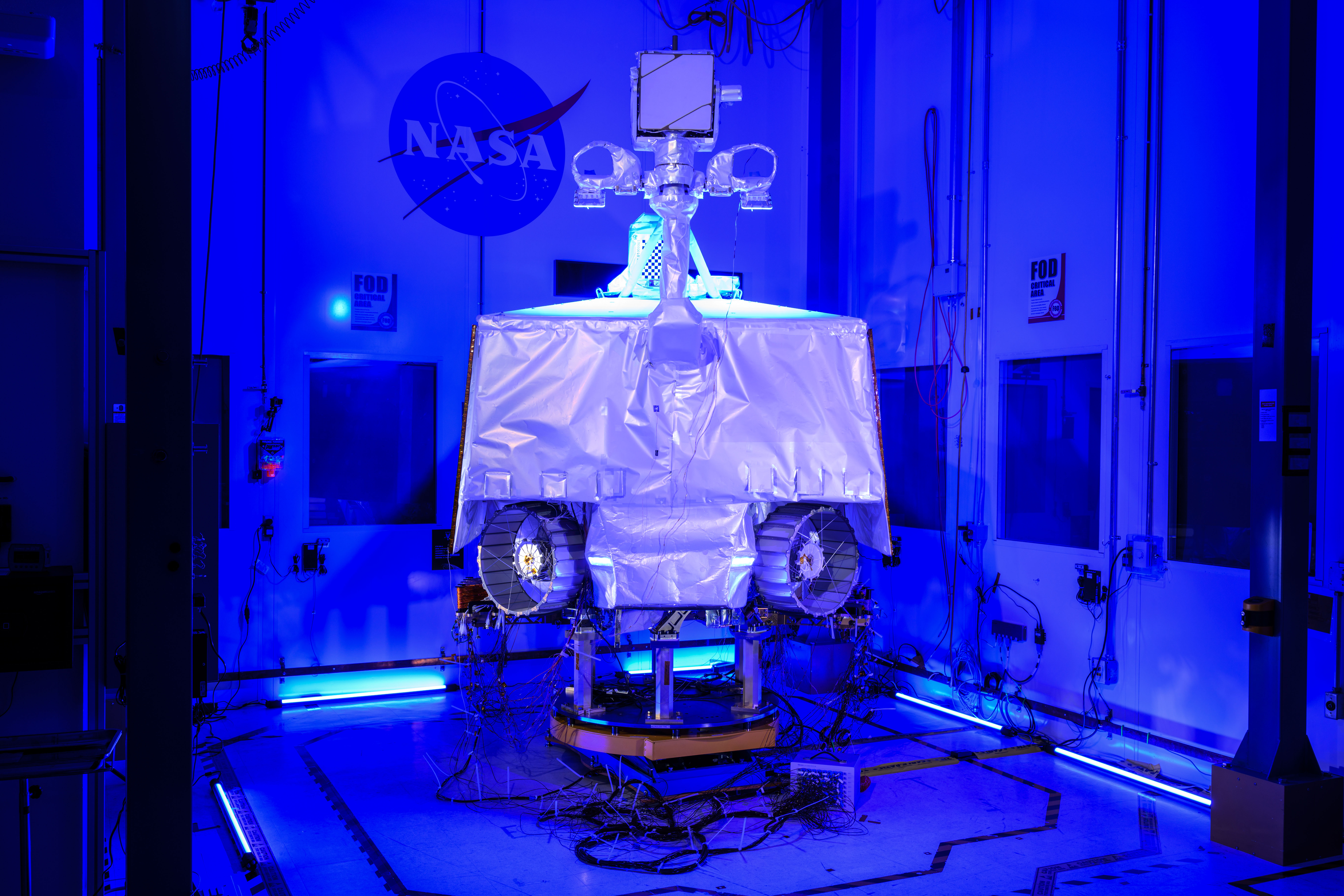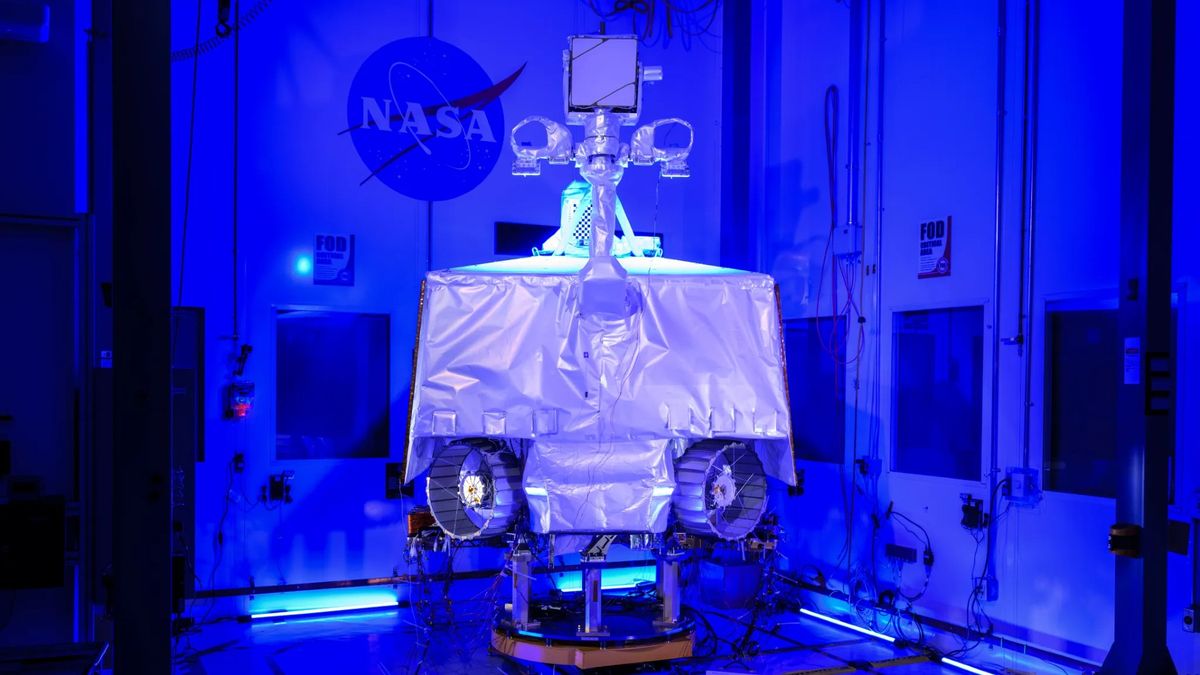
NASA's Volatiles Investigating Polar Exploration Rover (VIPER) mission, intended to search for lunar ice deposits near the moon's south pole, has been canceled due to rising costs and delays. The rover, built at a cost of $450 million, was scheduled to launch in late 2025 aboard an Astrobotic Griffin lander as part of NASA's Commercial Lunar Payload Services (CLPS) initiative. However, the mission faced significant challenges that raised concerns about its timeline and budget.
The VIPER rover, a wheeled vehicle about the size of a small car, was designed to search for water ice in the shadows near the moon's south pole. Its cancellation marks another setback in NASA's science efforts following delays and cost increases for other missions such as Mars sample collection and Europa Clipper.
NASA officials announced their decision on July 17, 2024, during a news conference. They stated that the mission faced scheduling and supply chain delays, which increased costs beyond what was initially budgeted. The agency will now disassemble VIPER and potentially sell or reuse its components for future missions.
Despite the cancellation of VIPER, NASA remains committed to exploring the moon's polar regions in preparation for human exploration. Future instruments as part of NASA's crewed missions will allow for mobile observations of volatiles across the south polar region and provide access for astronauts to permanently shadowed regions for dedicated sample return campaigns.
The VIPER rover was a significant investment, and its cancellation may be disappointing to those who had hoped to see it explore the lunar surface. However, NASA's decision reflects the realities of space exploration and the need to prioritize resources effectively.



